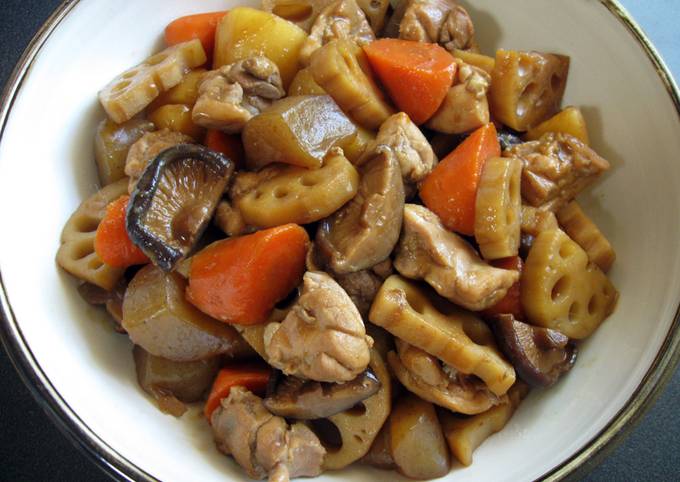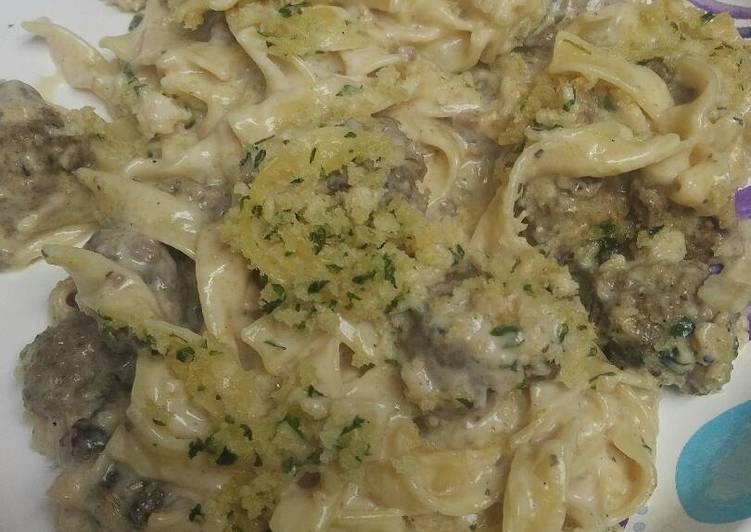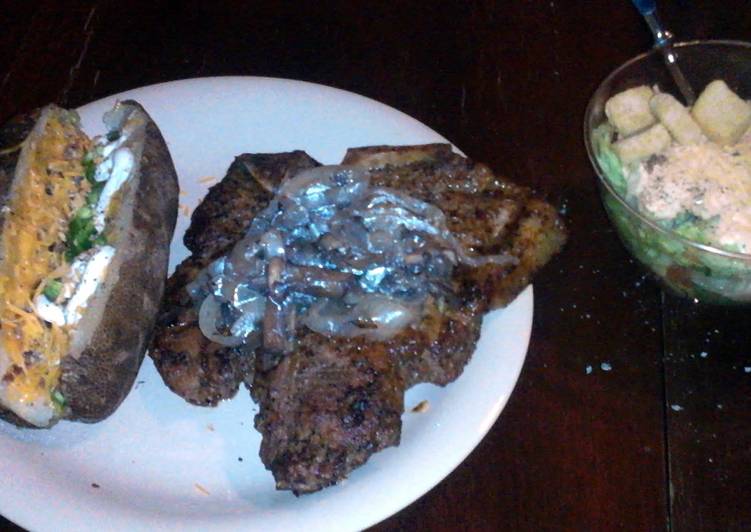
Hey everyone, it’s me, Dave, welcome to our recipe page. Today, I’m gonna show you how to prepare a special dish, simmered root vegetables & chicken. One of my favorites food recipes. This time, I will make it a bit tasty. This will be really delicious.
Simmered Root Vegetables & Chicken is one of the most popular of current trending foods on earth. It is easy, it is fast, it tastes yummy. It’s appreciated by millions every day. They’re fine and they look fantastic. Simmered Root Vegetables & Chicken is something which I have loved my whole life.
Drain, place in saucepan and add enought water to cover. Cook carrots in the Simmering Broth for Carrot. Leave the carrots in the broth. Cook lotus roots, shiitake mushrooms, taro and konnyaku in the Simmering Broth for Nishime until the broth almost evaporates.
To begin with this recipe, we have to first prepare a few ingredients. You can have simmered root vegetables & chicken using 13 ingredients and 8 steps. Here is how you can achieve it.
The ingredients needed to make Simmered Root Vegetables & Chicken:
- Make ready 300 g Chicken Thigh Fillets *cut into bite-size pieces
- Take 5-6 Dried Shiitake Mushrooms
- Make ready 1 block (250 g) Konnnyaku (Konjac)
- Make ready 1 large Carrot
- Prepare 200 g Lotus Root *thawed if frozen
- Get 1 Gobō *about 100g (Almost impossible to find!)
- Get 400 g Satoimo (small Taro) *Today I used Potatoes
- Take 1 tablespoon Vegetable Oil
- Make ready Soup
- Get 1 cup Water that was used to soak Dried Shiitake
- Prepare 2 tablespoon Mirin
- Get 4 tablespoons Soy Sauce
- Get 1 tablespoon Sugar
It is now popular in other parts of Japan and often prepared for the New Year celebration. It can be difficult to find all these ingredients outside Japan. Chikuzenni (筑前煮) or Nishime (煮しめ) is a classic Japanese dish often served on New Year's Day. This dish is made of root vegetables and chicken that are simmered in dashi, soy sauce, and mirin.
Steps to make Simmered Root Vegetables & Chicken:
- Soak Dried Shiitake in water, drain when soft, and save water. (*Avoid the dirt and settlings.) If Shiitake are large, cut in half.
- All vegetables need to be thawed if frozen. Peel and cut into bite-size pieces. Soak Gobō and Lotus Root in water separately to remove unpleasant taste.
- Taro Potatoes need to be pre-cooked. Boil in water for a few minutes, then drain.
- Tear (or cut) Konnnyaku (Konjac) into bite-size pieces and boil in water for a few minutes, then drain.
- Heat Oil in a pot over medium heat, cook Chicken for 30 seconds, then add drained Gobō, Lotus Root, Carrot and Konnnyaku (Konjac). Stir-fry for a few minutes.
- Add Shiitake and Satoimo (Taro), and mix to combine. Add all the soup ingredients and bring to the simmer. Cover with a piece of baking paper touching the ingredients, then cover with a lid and simmer over medium low heat for 10 to 15 minutes.
- Remove the lid and baking paper, and keep cooking, occasionally tossing, until the sauce is almost gone.
- When you serve, you can add some blanched Snow Peas, and arrange the dish decoratively. *Note: This dish can be served cold.
Chikuzenni (筑前煮) or Nishime (煮しめ) is a classic Japanese dish often served on New Year's Day. This dish is made of root vegetables and chicken that are simmered in dashi, soy sauce, and mirin. My mom used to make it quite regularly because it was my family's favorite type of simmered dishes. About Press Copyright Contact us Creators Advertise Developers Terms Privacy Policy & Safety How YouTube works Test new features Press Copyright Contact us Creators. Japanese sweet-simmered vegetables is a hearty, filling dish and the delicious sweet-and-salty broth is perfect during the cold winter months.
So that’s going to wrap this up with this special food simmered root vegetables & chicken recipe. Thanks so much for reading. I’m confident you will make this at home. There is gonna be more interesting food at home recipes coming up. Remember to save this page on your browser, and share it to your family, friends and colleague. Thank you for reading. Go on get cooking!


